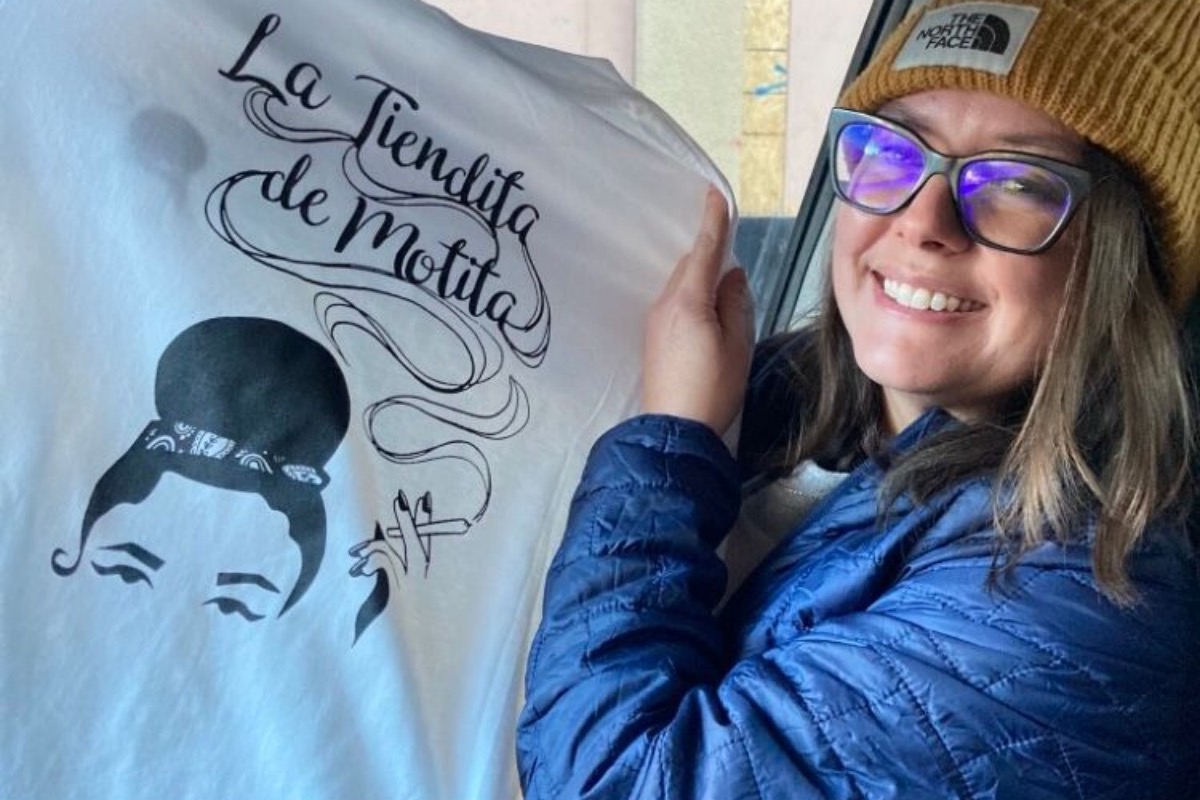During the last school year, a group of middle school teachers left their classrooms and in late July opened a dispensary in Albuquerque, New Mexico.
“I always enjoyed teaching and education, and it just wasn’t fun anymore, so it was just time to move on,” Jamie Munsey, co-founder of La Tiendita de Motita, told Latino Rebels.
Munsey retired from teaching at South Valley Preparatory Middle School after 20 years of work. She planned on becoming the principal, but it didn’t pan out. Munsey saw two options for herself: start another career at the local university or open up a dispensary.
The group of former teachers has joined a small but growing number of Latina-owned dispensaries in the United States. Latinos hold 5.7 percent of cannabis licenses, according to the National Hispanic Cannabis Council (NHCC), an organization founded last year to address the underrepresentation of Latinos in the industry.
“That’s less than 500 [licenses] across the United States,” Antonio Valdez, executive director and co-founder of the NHCC, told Latino Rebels. “Our whole mission is to educate the Latino community on the health and wellness of cannabis, and secondly, to empower more Latinos into the industry, whether that’s through careers in cannabis or skin in the game as owners.”
There’s no exact number for how many Latina-owned dispensaries exist in the U.S., but Valdez says he’s noticed more Latinas entering the business.
“Even though the industry we’re in, it gets a bad rap and stigma and stuff, we really want to somehow through this be able to support the community in some sort of venture,” Munsey said.
New Mexico legalized recreational marijuana last summer. Non-medical users hit the storefronts last April, when recreational pot became available to legally purchase across the state, bringing in just over $22 million in recreational sales. In July, retailers reported over $23 million in recreational cannabis sales. Albuquerque raised the most in recreational sales, totaling about $7.6 million.
“These numbers show that the impressive sales generated in the first month of legalized recreational cannabis sales were no fluke—and this is only the beginning,” said New Mexico Gov. Michelle Lujan Grisham in a statement. “We’ve established a new industry that is already generating millions of dollars in local and state revenue and will continue to generate millions more in economic activity across the state, creating thousands of jobs for New Mexicans in communities both small and large.”
The thought of opening a dispensary wasn’t serious at first. The idea bubbled up after Munsey and four other teachers went out for happy hour after they’d resigned last December.
“We were just joking around and stuff and said, ‘Wouldn’t it be hilarious if we opened a weed shop?’” Munsey recalled.
What started as a gag became reality when they put money toward their goal.
A lack of access to capital remains a critical challenge for women interested in opening a dispensary. The amount of money needed to launch a plant-touching business, or any business that directly handles cannabis plants or products, can easily exceed six figures, according to a 2021 MJBizDaily report about women and minorities in the cannabis industry.
Without networks of investors, it can be hard for women to come up with the funding. But the ladies at La Tiendita de Motita made it work.
Munsey pulled from her retirement and sold her truck to put money into the business. “I know that people had savings set aside that they pulled from, so this is like a true grassroots effort with no investors except for us,” Munsey said.
As New Mexico sees its first year of recreational cannabis sales, the stigma around the plant still lingers in the Latino community.
La Tiendita de Motita officially opened in July, and since then, Munsey’s previous students have visited the shop. But many students’ parents have been hesitant to step inside.
“I had parents who won’t come in, but they’ll ask me to go out to their car to visit them, which is fine, and I will because they want to see me. But they won’t come into the store,” Munsey said.
Laura Lagarda, one of the co-founders of the shop, dealt with some uneasiness from her parents when she told them she was venturing into the cannabis business. Like some of the students’ parents, Lagarda’s father stayed in his car when he paid a visit to the storefront.
“As long as my husband and my kids support me, it’s all good,” Lagarda said.
The women behind La Tiendita de Motita plan to expand to farming and remain local by working with women and family-owned businesses. They hope to develop the strains that they’re known for.
“I just want to show people that we are highly educated women. We’ve all had previous professions. Many of us in this group have our master’s degree. So, yes, we’re women, but we’re going into this business,” said Munsey.
***
Chantal Vaca is a summer correspondent for Futuro Media based in New York City and a graduate of the Columbia University School of Journalism. Twitter: @VacaChantal



